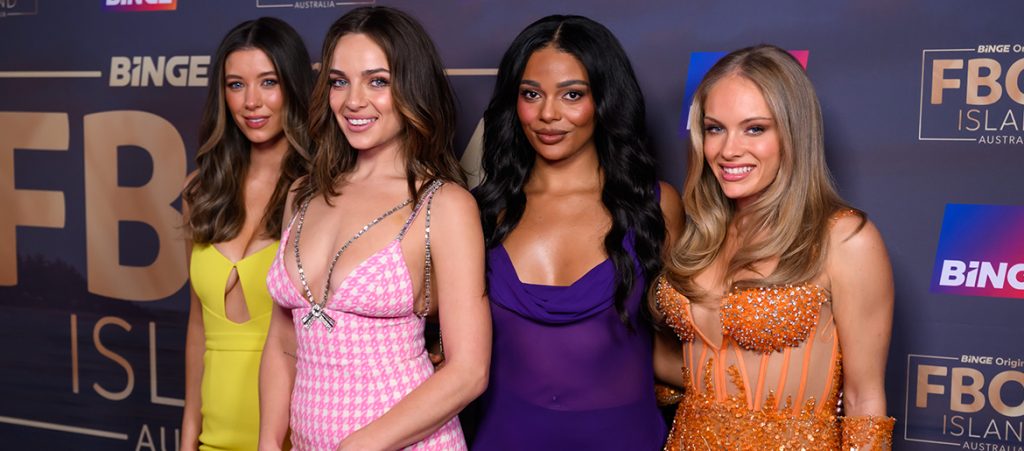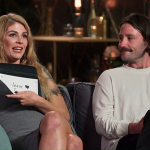
It’s no secret that reality TV has a complicated relationship with women and feminism, straddling the line between empowerment and exploitation. The genre has become significantly more self-aware of this relationship lately, making a real effort to embrace more diversity and create storylines of female empowerment. But there is a big difference between making a show that is inherently feminist and simply marketing it as such. It’s time to dig below the surface and grapple with the question: can reality TV ever truly be feminist?
Choice feminism isn’t enough
First, let’s get clear on an important definition: feminism is about women’s liberation, not just freedom of choice. It is about dismantling the oppressive patriarchal systems and societal norms that harm us all.
When a reality TV show claims to challenge the status quo of the genre and empower women, it usually does so by focusing on the cast’s ability to choose. But when their choices are confined within the same patriarchal framework we live in, the freedom is an illusion.
Dating shows provide the clearest examples of choice feminism in reality TV. They often claim to empower women by giving them the ultimate say in who they choose as partners, while asking them to make those decisions in an environment where harmful gender dynamics and beauty standards are reinforced and participants vulnerabilities are exploited. On Australia’s newest dating show, FBOY Island, power is “placed back in the hands of the women” by having Molly O’Halloran, Sophie Blackley and Ziara Rae date (and eliminate) a collection of male contestants. Half of the men are ‘nice guys’, the other half are self-proclaimed fuck boys – the onus is on the three women to figure out who is who. If Molly, Sophie and Ziara end up with a nice guy at the end of the series, they’ll split a $50,000 prize. But it their final chosen partner is a fuck boy, he gets to decide whether to share the money or keep it all for himself.
Host Abbie Chatfield acknowledges the show is not meant to be serious political commentary. “But as far as reality shows go, it is pretty feminist as we call out the f-boys constantly and the women are in control.” But are the realities of FBOY Island enough to claim it’s even a little bit feminist? For anyone (including women) to feel a sense of control over their dating experience is really the bare minimum. The show concept still defaults to the patriarchal idea that in heterosexual relationships, women are responsible for reforming bad boys (or fuck boys). In episode one, Chatfield tells the three main contestants: “It’s up to you to break some bad habits, break down some walls and figure out what you actually want.” The fuck boy contestants are there for the sole purpose of duping them – suggesting it’s the woman’s own fault if she fails to pick up on his tricks. By putting the burden of the emotional labour on women, shows like FBOY Island are not fundamentally different from The Bachelor or Bachelorette.
Truly feminist entertainment would reimagine the roles of all involved, far beyond flipping the gender of chooser and chosen.
Other reality TV subgenres are guilty of falling into the faux feminist trap too. Selling Sunset is marketed as empowering, showcasing strong women in a competitive industry. We see successful women owning their careers, their fashion choices, and their lives… In season six, the awakening Chrishell has in her personal life is genuinely powerful. But it doesn’t make up for the stereotype the show perpetuates about what it’s like to work with lots of women. Drama and catfights are the true focus of the show, far more than anyone’s real estate career. Are these women portrayed as multi-dimensional individuals with agency, or reduced to characters who are shifted from one conflict to the next for our entertainment?
A capitalist wet dream
Reality TV is a business, driven by profit and ratings. Let’s face it: capitalist motives do not align with feminist principles. And what could be more of a capitalist’s wet dream than making a lot of money from broadcasting women fighting with each other? To take it a step further, most TV and production company executives are men – they make the most, while female reality contestants get the short end of the stick. Andy Cohen is the self-proclaimed daddy of the Real Housewives franchise, and has arguably made a career out of portraying women as crazy and shallow.
If you can’t make money off the spectacle of female hysteria, then you can still make it by selling beauty. Only those who adhere to the feminine beauty standard are allowed to experience the reality TV version of empowerment. On the more youthful dating shows like Love Island, Perfect Match, Too Hot to Handle, and F Boy Island, sexuality is used as a marketing tool rather than a symbol of liberation – they are filled with slow-mo body shots of contestants walking into a room or lounging by the pool. The Kardashians have made millions from their reality TV show. Their success as an entertainment concept undeniably comes from their willingness to conform to the most narrow beauty standards, especially as they get older.
For viewers and even aspiring reality TV contestants, the message is clear: looking like this will make you feel empowered. Luckily, you can try to buy beauty through makeup, cosmetic procedures, and trendy fashion choices (even though beauty won’t grant you any real power)… generating profits for the (mostly male) executives of beauty and fashion companies. And so the cycle of capitalism continues!
Feminist reality TV does exist
There is hope amidst the chaos! But the truly feminist reality TV shows are not marketed that way. The first season of Alone Australia has been a huge success, with Gina Chick becoming the first ever woman to win the franchise. Chick showcased strength, resilience and a truly unique perspective on survival during her 67 days stranded in the Tasmanian wilderness.
Other reality TV-adjacent shows have feminist ideals baked directly into the concept. Love on the Spectrum presents an empathetic and inclusive portrayal of individuals on the autism spectrum, prioritizing autonomy and emotional wellbeing in their search for love. Old People’s Home for 4 Year Olds and Old People’s Home for Teenagers highlights the importance of expanded community, subtly challenging the idea that women are solely responsible for looking after their own children and elderly parents. The show champions the very feminist idea that being part of a wider community helps up not only survive, but thrive.
Feminist reality TV absolutely does and can exist, but it’s unlikely to be branded with a catchy, girlboss slogan.
The value in human observation
I want to make it clear, I’m not dismissing reality TV altogether (I have thought about Scandoval everyday since the news broke). Enjoying reality TV doesn’t make you dumb or a lesser beings – in fact, there is real value in watching people navigate their lives in front of the cameras. It’s a window into human existence.
Reality TV allows us to witness diverse perspectives, engage in discussions about societal issues, and find moments of connection with others. It can serve as a platform for amplifying marginalized voices and shedding light on important topics. Summer House taught me how to navigate difficult conversations about race with friends who are not of colour, Real Housewives of Beverly Hills showed me how to support friends with eating disorders, and Indian Matchmaking helped me learn more about my parents and my culture, despite Seema Aunty’s many shortcomings. There are pockets of good within this genre that we can appreciate without sacrificing our critical lens. In fact, finding the good requires a critical lens.
Questioning the narratives presented to us and demanding more diverse and authentic portrayals helps make reality TV, and all entertainment, better.




Comments are closed.